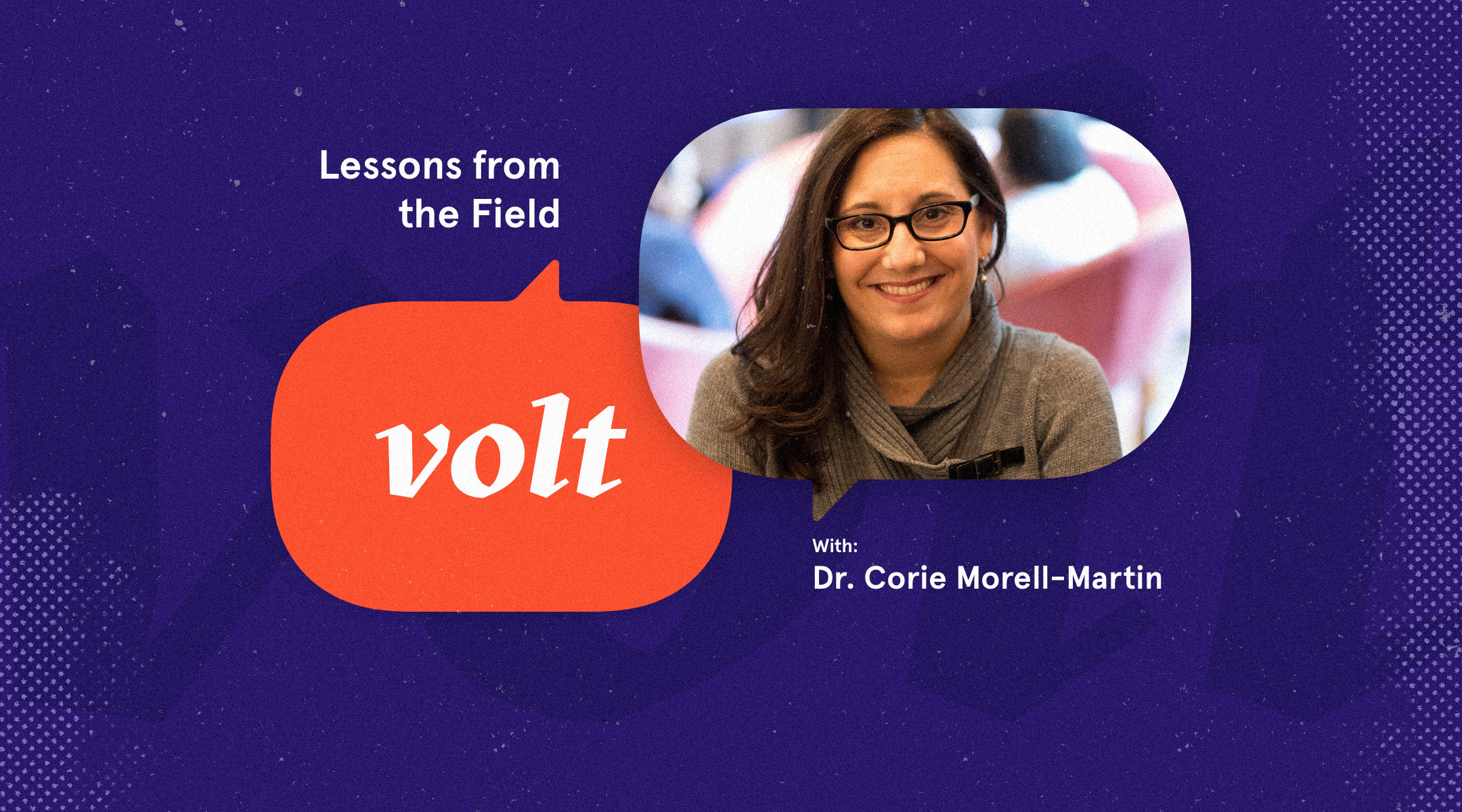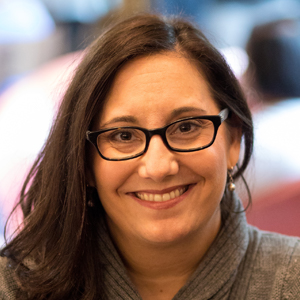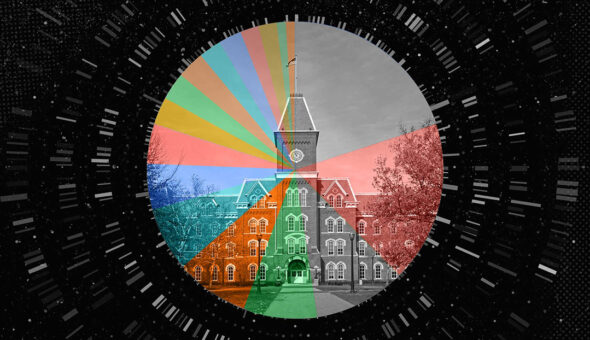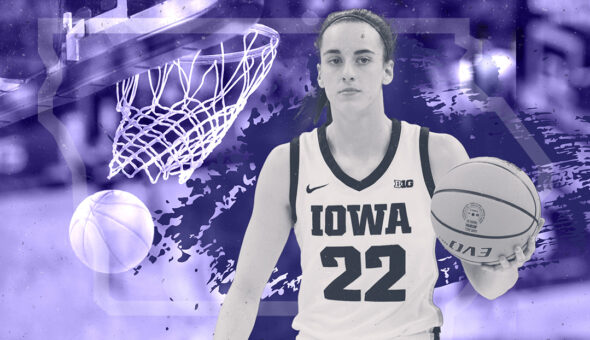The marketing tool I can’t live without is…
I can’t live without my content calendar. Our team uses shared Google sheets and calendars to plan and coordinate our monthly content campaigns. It’s simple, but effective and affordable. We’ve only been using these tools for the last few years and I have no idea how we got by without them before.
The best marketing I’ve ever seen is…
I love smart marketing. I love to see that a brand knows its audience and hits the mark, or the use of a clever tag line or great design. I think great marketing is a process that extends far beyond the campaigns themselves. From market research to product placement and timing, it’s a cycle that never ends. Great marketing never stops, it just evolves.
My favorite memory from undergrad is…
I discovered what I wanted to be when I grew up somewhere around my sophomore year. It started when I began to connect with my professors. Dr. Sally Ray was my Communication professor and eventually my mentor. Something about the way she shared her expertise resonated with me. I always knew I wanted to be a writer, and I believed journalism was my path. Through Dr. Ray, I discovered that I wanted to do more than just write — I wanted to connect with people and to connect people to each other. At the same time, I also connected with a Sociology professor, Dr. Craig Taylor. I was fascinated by the study of people and why they do the things they do, which is something I am still intrigued by today. The things I learned from both of those professors are things I have used every single day in my career. Incidentally, both of those professors are still with WKU — Dr. Taylor for more than 50 years, and Dr. Ray for more than 25.
In the next five years, I’d like to…
Listen, connect, support, research, learn, write, grow. In no particular order.
My biggest professional mistake was…
There was a point in my career where I was what I did. There was no separation, no line between Corie the individual and Dr. Martin the professional. All the things were intertwined and I was “on” all the time. Here is why that is a mistake, in my honest opinion. When you are what you do, professional setbacks hurt on a deeply personal level, not to mention the impact on work-life balance. I have learned there is nothing that a solid support network, a clear professional vision, integrity, and a great sense of humor can’t pull a person through.
I start my day at…
6:00 am-ish, typically. I would love to tell you that I jump up, make the bed (because “successful people make the bed every morning”), walk the dog, go to the gym, eat something healthy, and arrive at work early to the envy of all my peers, but here’s the truth. I hit the snooze button at least twice, hustle out the door, get the kids to school, still usually make it to work on time, and mainline coffee until at least 10 am. Oh, and I don’t even have a dog.
I start almost every day in the office catching up with our team to commiserate and plan our day’s action items over coffee. It’s the perfect start to what will surely be a busy day, but it helps us focus and prioritize on what we have coming up. Plus, I get to hear all about their kids, the amazing things they cooked for dinner the night before, talk about our favorite Game of Thrones highlights, complain about how cold our office is — normal stuff.
The secret to a student succeeding at my school is…
Our students succeed by making connections, getting involved, and asking for help when they need it. In my research, I’ve learned that the new generation of students isn’t as accustomed to asking for help. I think many of them assume it will be offered, and they become frustrated and discouraged if they don’t get what they need. When I talk to upperclassmen, they attribute their successes to making personal connections with professors and academic student organizations that have helped to place them with internships, leadership roles, and job opportunities.
The biggest challenge facing higher education marketers is…
The generational shift might be a challenge for some who have been doing this for a while. We have to shift our focus from being everywhere to developing custom campaigns aimed at connecting with individuals as opposed to groups of students. It’s interesting because none of these concepts are new. We’re employing some of the same tactics of personal connection that we did a decade ago when social media was new. But now, students have our number. They expect authenticity and they’ll walk away if they don’t get it. Higher ed marketers have to be fluid, ditch the old ways that might have worked, and adapt to different ways that work today. Tomorrow, everything might change. You have to go with the flow, and that can be hard for some people.
My biggest professional achievement is…
Earning my doctorate and using it for good, by far.
The future of higher education will be…
Customizable academic and student experiences. We’re already there in some regard. Higher ed is most definitely not one-size-fits-all anymore, and it hasn’t been for some time.
When someone tells me they want to work in higher ed, I tell them…
On the staff side, I’ve learned that not many of us actually planned on working in higher ed, with the exception of student affairs personnel. Many of us just fell into it, and then fell in love with it. When someone tells me they want to work in higher ed, it’s often because they haven’t had a good experience in the private sector and they’re seeking stability and an environment where they can contribute in a positive way. My answer has varied over the years, but overall, I have a great team, and we have been successful. But do your homework about the team you will be on, and your earning and advancement potential before you decide.
A WKU student is…
Cared for. Tenacious. Family.
A key to my success has been….
Intuition. I’m very good at reading people and situations and developing strategies that adapt to both. I embrace others’ strengths and love collaboration and learning from others. An effective leader is not the loudest voice in the room, nor are they right all the time. I still have a lot to learn, and I do my best to surround myself with kind, fun people who are great at what they do.
The biggest difference between higher ed now and when I started is…
I feel like higher ed is constantly defending itself now. Budgets and personnel have been cut, there are fewer high school graduates, so there are fewer people going to college. Students fear debt, and rightfully so. Faculty and academia are at risk, particularly in the humanities. There seems to be a lot of defensiveness and in-fighting. People are trying to protect themselves and their careers, and the academy. I read about it every day. I feel it too.
Several years ago, some graduating high school seniors didn’t see the value in higher education as an investment in their futures. Now, some of those same students are coming back as adult learners having realized that they didn’t have the credentials they needed to rise in the workforce. Eleven years ago when I started, it seemed like college was a foregone conclusion. Recruitment didn’t seem so hard. Retention wasn’t the hot-button issue it is today. But again, it’s all a cycle.
The biggest threat to higher ed is…
Higher ed.
One thing I’ve learned about managing teams is…
Each team member is a human being. Human beings have feelings. If you want people to succeed, appreciate them. A sincere “Good job” or “Thank you for your hard work” is often more than enough. Especially when you really mean it. Empowering others and giving credit where credit is due are also critical actions.
The most random thing I’ve ever seen on campus is…
I was walking out of class on a Saturday once and there was a large group of about 20 clowns all piling into a car. I stopped and took pictures of it because I run social media at WKU, so there was no way I was not posting that. Because, if there are no pictures, then it didn’t happen, right? It turns out that it was a summer camp for teenagers.
We also had a Quidditch team one year. Yeeeeah.
I love my job because…
WKU is part of who I am. It’s woven into the fabric of my life. I’m more qualified to evangelize the WKU experience because I’ve lived it myself, and I believe in the benefits of what we’re doing here. Knowledge is a gift that you can give yourself that no one can take away from you and that starts with education. We are impacting futures here. We are helping young people grow and succeed. What’s not to love about that?







